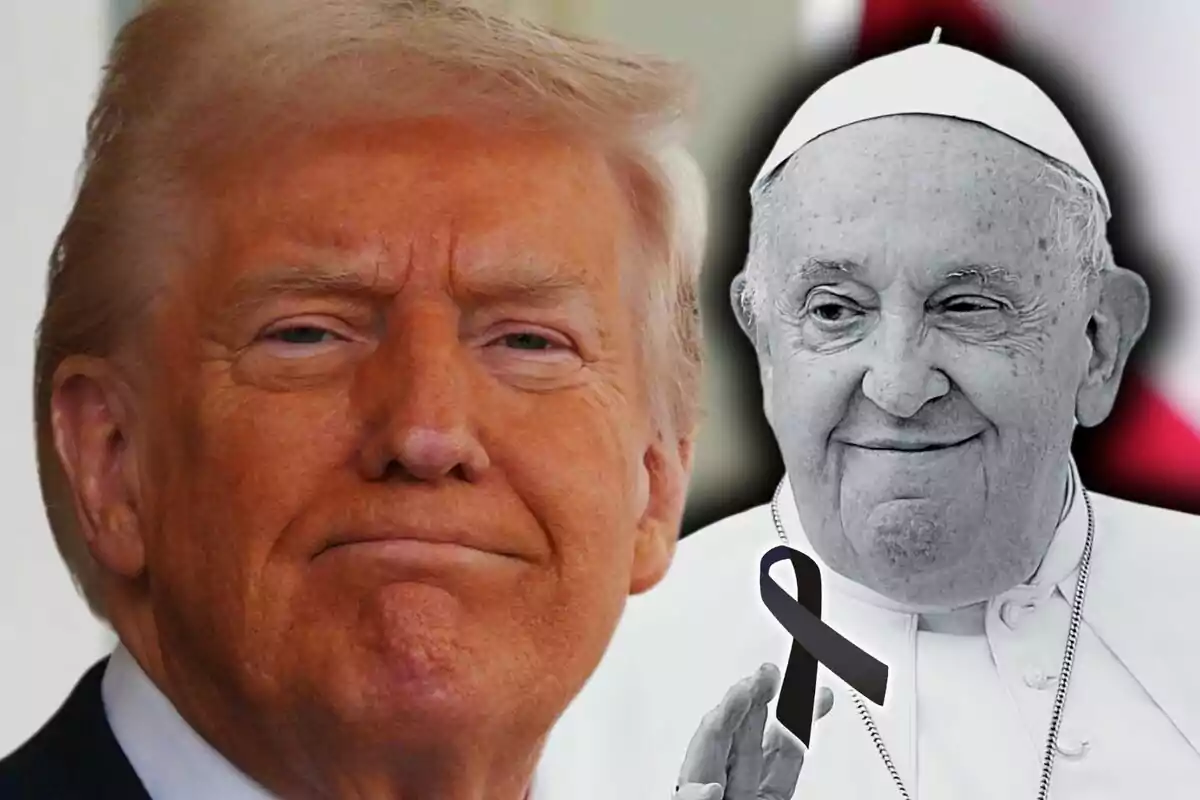
Who Will be the New Pope: Donald Trump's Personal Bet
With the death of Pope Francis, a new conclave begins where one of the most repeated names is that of a U.S. cardinal
The death of Pope Francis has shaken the Catholic world, which is in mourning today. Jorge Mario Bergoglio passed away this Monday at the age of 88 due to a stroke, in his Vatican residence, Casa Santa Marta. With his passing, an essential chapter in the recent history of the Church closes, marked by a unique figure who broke the rules from day one.
With him ends a pontificate of more than twelve years, filled with symbolic gestures and decisions that sparked debates inside and outside the Vatican. Among many other things, he will be remembered for being the first Latin American Pope. His leadership, often questioned by the more conservative sectors, pushed for a Church closer to social peripheries and more open in doctrinal matters.
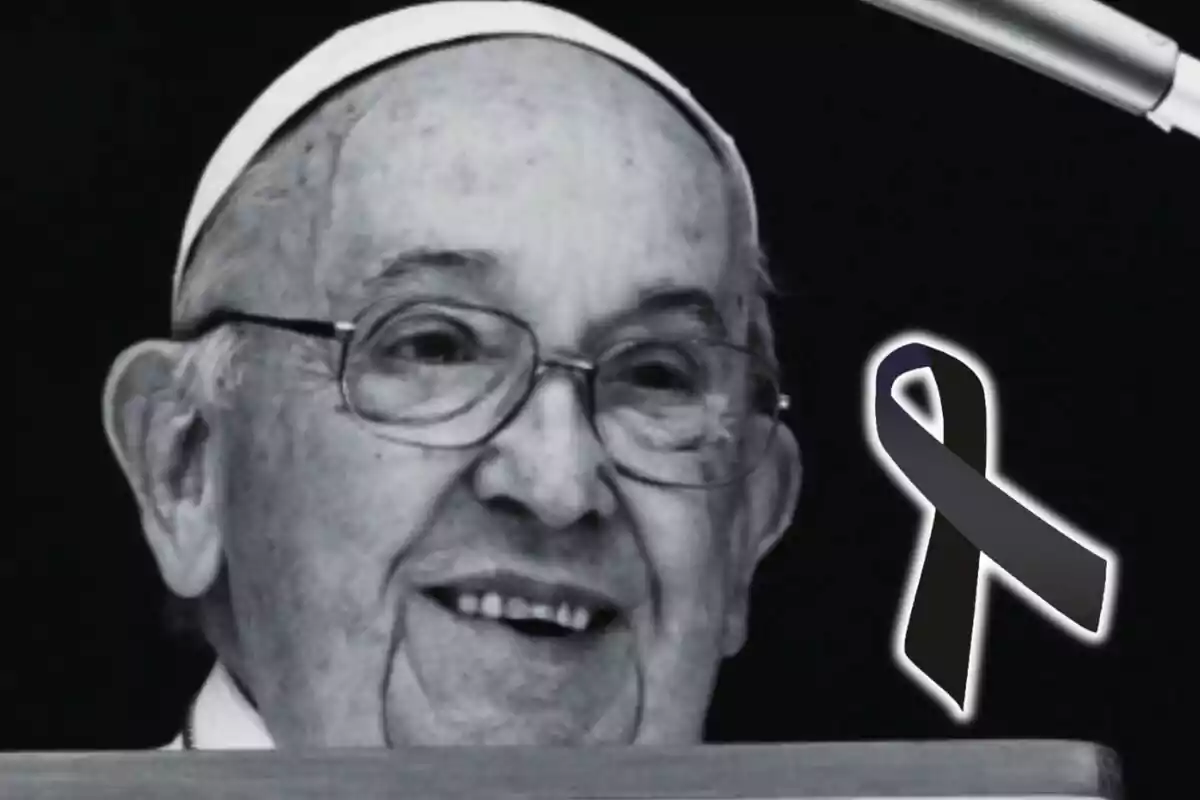
After the Death of Pope Francis, Attention Turns to the Conclave
Now, time is running, and attention shifts to Rome, where a new conclave is being prepared. The cardinals have a maximum of 15 days to gather in the Sistine Chapel, where the process of electing the next pontiff will begin. Expectation grows as the Church enters a period of reflection, analysis, and crucial decisions for its future.
In the midst of this solemn atmosphere, names of possible successors begin to emerge. The Church is preparing for an election filled with symbolism, where each vote can shape the spiritual direction of millions of faithful.
Among the candidates, one stands out especially: Cardinal Raymond Leo Burke. An American, with a career marked by his doctrinal firmness and his opposition to some of the reforms pushed by Pope Francis, he emerges as one of the most mentioned names. His figure generates special interest among the more traditional sectors of Catholicism.
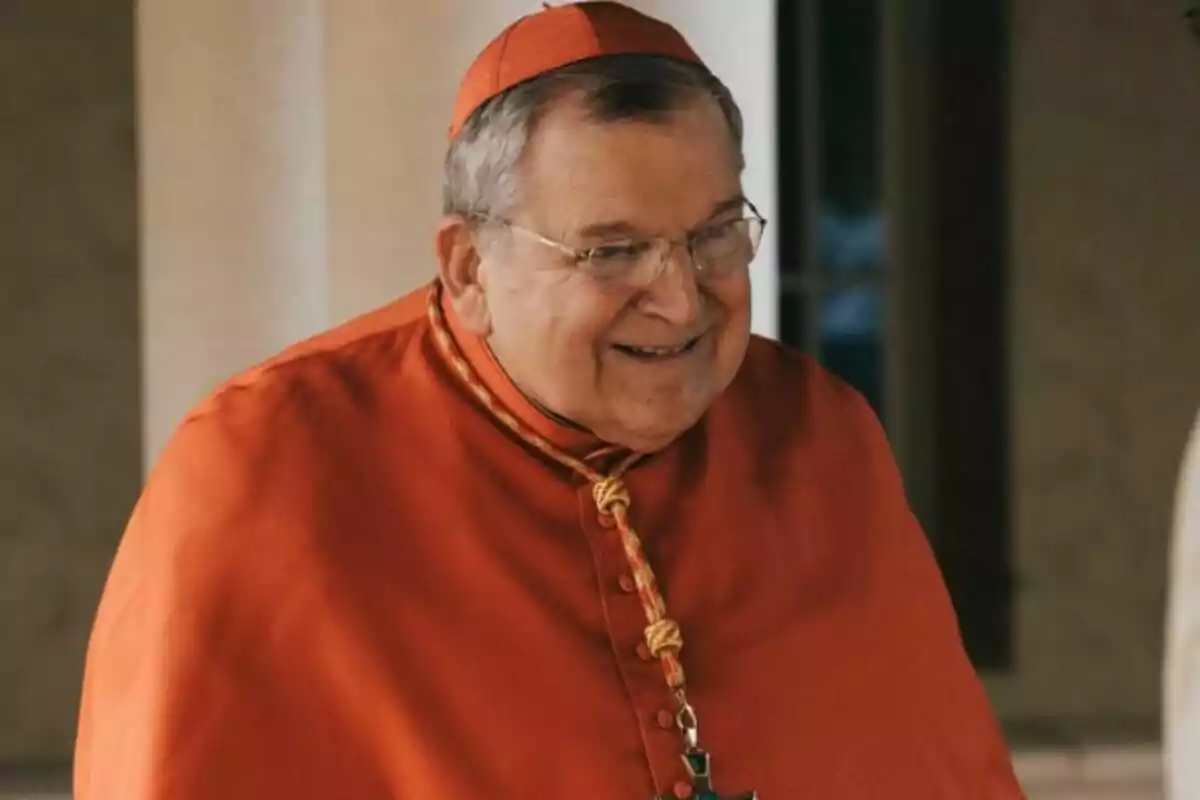
Raymond Burke: A Career Marked by Tradition
Burke was born in Wisconsin in 1948, the youngest of six siblings. His ecclesiastical training began at Holy Cross Seminary. He later studied at the Catholic University of America and earned a doctorate in canon law at the Gregorian University in Rome.
He was appointed bishop by Pope Paul VI in 1975 and later became Archbishop of St. Louis. In 2008, Benedict XVI appointed him as Prefect of the Supreme Tribunal of the Apostolic Signatura.
Two years later, he was elevated to the rank of cardinal. Since then, his influence within the Church has been significant, especially in doctrinal and judicial matters.
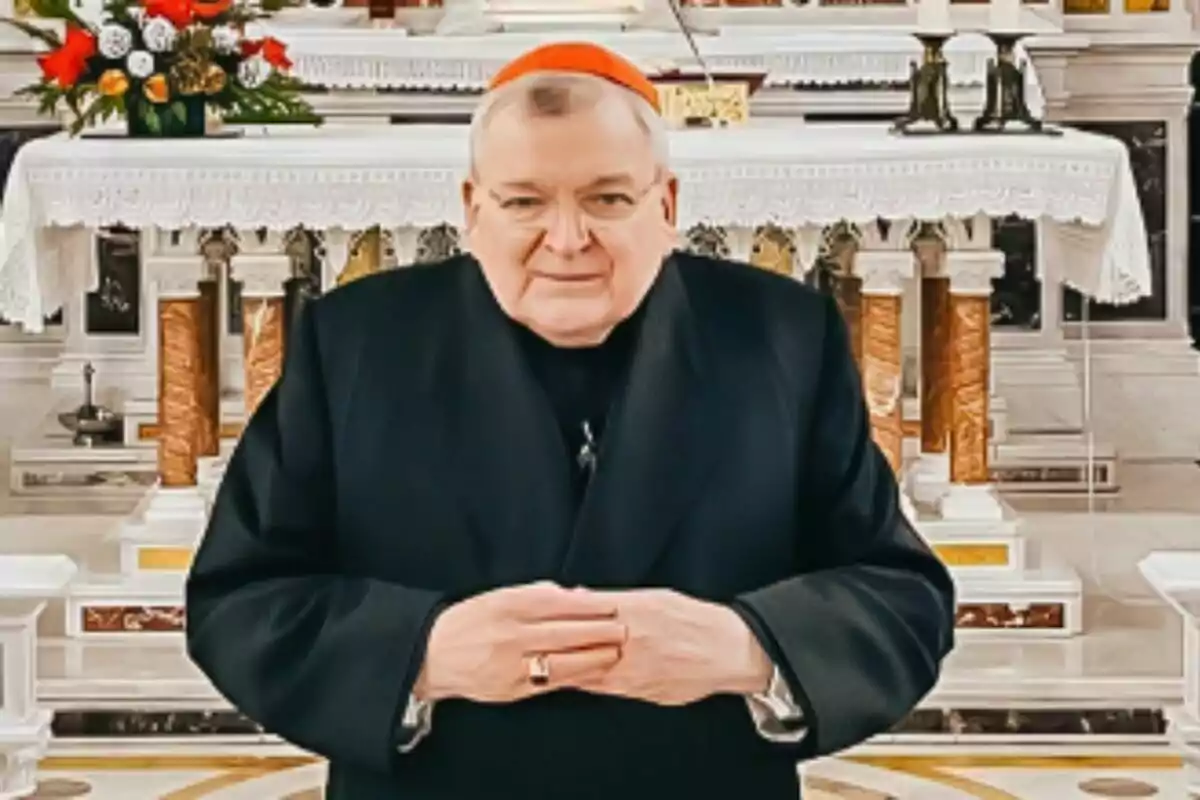
Burke represents the most traditional vision of the Church. He has spoken out against Pope Francis's progressive approach. He has openly questioned positions on LGBTQ rights, divorce, and the role of women.
His opposition to the exhortation Amoris Laetitia was notable. This text by Pope Francis discusses love in the family. Raymond Burke considered it contradictory to ecclesiastical tradition.
In favor of the "hermeneutic of continuity," Burke advocates for reforms in line with the past. This approach was promoted by Benedict XVI. For Burke, any change must be rooted in tradition.
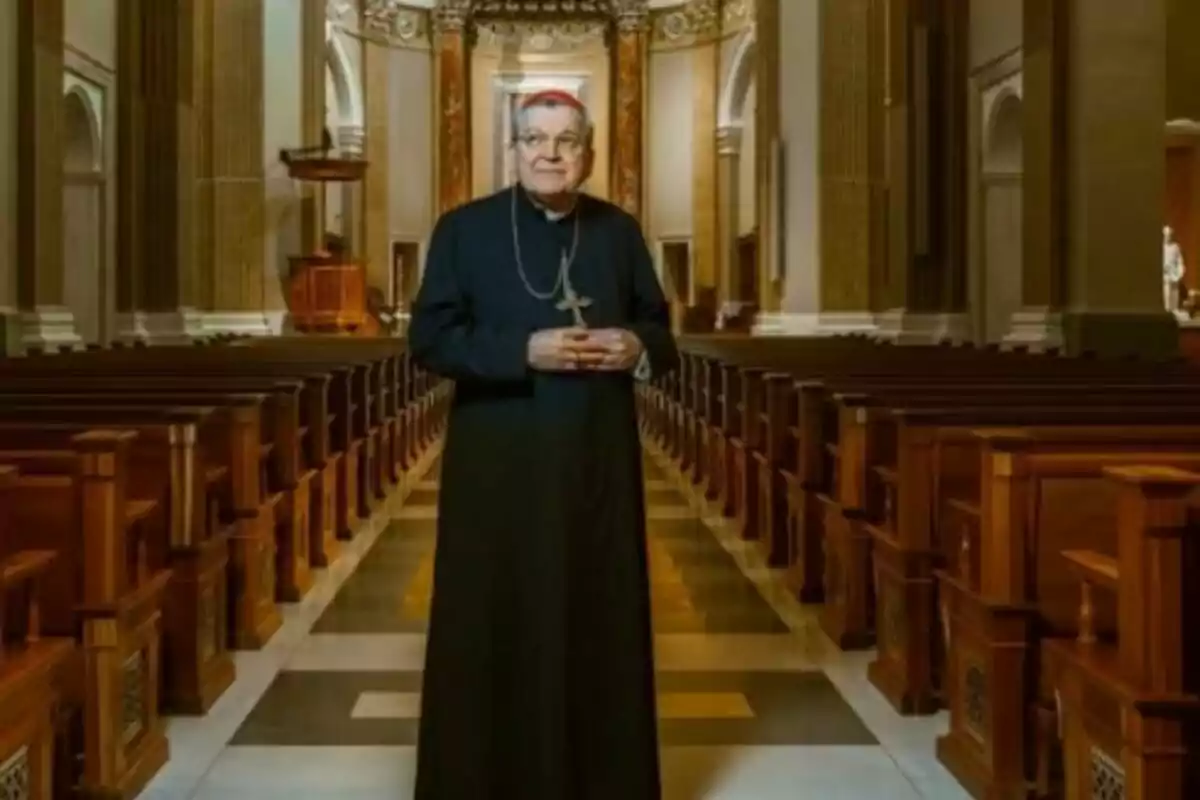
Political Support with a Name: Donald Trump
But his figure transcends the religious. In the United States, Raymond Burke has received support from Donald Trump. The former president has praised him for his conservative values.
Trump sees in Burke a guarantee of traditional identity. An ally in the defense of what he calls "Christian values." His support has resonated in Catholic sectors of America.
Raymond Burke also navigates the digital world with ease. He has an active presence on social media. On Instagram, he shares reflections in video format.
This visibility makes him a recognizable face. Not only in Rome but throughout the Catholic world. Especially among those advocating for a more orthodox direction for the Church.
With the death of Pope Francis, America seems to have a clear candidate. Raymond Burke symbolizes a possible return to a more rigid Church. And he has political backing that could influence more than expected.
The conclave will decide in the coming days. In the Sistine Chapel, the spiritual future of more than one billion faithful is at stake. And perhaps, the option that emerges will have an American accent.
More posts: